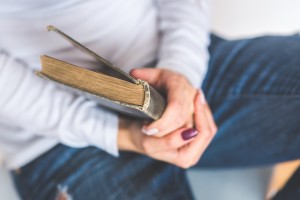
New Delhi: Board exams will not be held in the month of February next year and the Central Board of Secondary Education (CBSE) will very soon announce the dates after discussion with the stakeholders, Union Education Minister Ramesh Pokhriyal ‘Nishank’ said here today.
He said that CBSE was making necessary preparations for conducting the 2021 examinations. Pokhriyal was virtually interacting with teachers across the country on upcoming competitive and board exams.
Regarding schedule and syllabus of entrance examinations, the Minister said that the syllabus of JEE (Main) 2021 examination will remain the same as it was last year. However, in order to overcome the impact of reduction of syllabus undertaken by some Boards, the question papers for JEE (Main) 2021 will have 90 questions (30 question each in Physics, Chemistry & Mathematics), out of which the candidate will have to answer 75 questions (25 questions each in Physics, Chemistry & Mathematics), he added.
Regarding a suggestion on providing vocational education in class IX, Pokhriyal said that there were approximately 8,583 CBSE schools that offered vocational education. He informed that that over 2,80,000 secondary schools, nearly 40,000 colleges and more than 1,000 universities were expected to provide vocational education with internship after the implementation of NEP 2020.
Responding on suggestion that Teachers should be given sufficient training regarding the implementation of Competency Based Education in schools Shri Pokhriyal informed that Ministry of education has implemented NISHTHA programme, which is an online capacity building programme for covering all 42,00,000 elementary school teachers and school heads of the country. This programme was conducted face to face before the pandemic. However, in its wake, this programme was contextualised to the needs of teaching and learning during the pandemic and made 100% online.
The Minister also informed that CBSE, KVS and JNV undertook a massive exercise to build online teaching capacities of their teachers as soon as the lockdown started, to ensure continuity of learning through online means, wherever possible. In the process, CBSE has trained 4,80,000 teachers, KVS trained 15855 and JNV trained 9085 teachers all India. Training was also imparted by NVS to teachers regarding online assessment, he added. Shri Pokhriyal further informed that teachers are being continuously trained for discovery based and experiential learning. The new National Curriculum Framework (NCF) for School Education has also been initiated and NCERT will be expected to make changes in the textbooks in accordance with the new NCF. Areas, such as creative thinking, life skills, Indian ethos, art, and integration, etc. need to be integrated.
Regarding Mental Well Being of students, he said the Ministry had undertaken an initiative, named ‘MANODARPAN’ covering a wide range of activities to provide psychosocial support to students, teachers and families for Mental Health and Emotional Wellbeing during the COVID outbreak and beyond.
On the question relating to digital divide due to lack of gadgets and sufficient network, the Minister said MoE has initiated the “coherence” model under PM E-Vidya. He said that the content available online on DIKSHA was now available through Swayam Prabha TV channel. Similarly, it would be available on radio also. Therefore it will not be necessary to have access to the internet only as TV and radio would also be coherent with online content, he added.
The Minister highlighted that Swayam Prabha DTH channels were meant to support and reach out to those students who do not have access to the internet. “In the Ministry of Education, a total of 32 channels are devoted to telecast high quality educational programmes,” he informed. Of these, 12 TV channels were earmarked for the one class, one TV channel under the Atma Nirbhar Bharat Programme for the Department of School Education and Literacy, he added.
Pokhriyal said that Radio broadcasting was being used for children in remote areas who were not online and NCERT is producing high quality audio/radio programs with effective media treatment such as apt music, sound effects and involvement of seasoned and refined artists of good repute in the media world. In all there are about 2000 audio-radio programmes produced by CIET-NCERT in Hindi, English, Urdu and Sanskrit, he added.
– global bihari bureau




